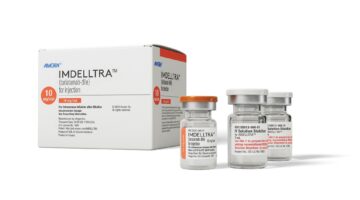- Image via Wikipedia
Highlights of the important and the interesting from the world of health care:
Obama embraces GOP reform ideas: Following up on last week’s health summit, President Obama has embraced four Republican reform ideas. Like the summit itself, the gesture likely is aimed at convincing the American public that Obama and Congressional Democrats have made an honest effort to work with the GOP on reform. The move should help give Democrats political cover for their latest strategy of passing a reform measure without any Republican votes, which will involve a Senate maneuver called reconciliation that skirts the filibuster. It should be clear to all observers by now that the GOP would never endorse “Obamacare” in any form even if it included a provision to plaster Ronald Reagan’s face on every form of national currency.

With the Rise of AI, What IP Disputes in Healthcare Are Likely to Emerge?
Munck Wilson Mandala Partner Greg Howison shared his perspective on some of the legal ramifications around AI, IP, connected devices and the data they generate, in response to emailed questions.
In a letter to congressional leaders, Obama said he was open to the following: sending investigators disguised as patients to uncover fraud and waste; expanding medical malpractice reform pilot programs; increasing payments to Medicaid providers and expanding the use of health savings accounts. As if that isn’t going far enough to show that the current reform plan could hardly be characterized as liberal or partisan, let’s not forget that the Senate bill is largely similar to Republicans’ 1993 counterproposal to President Clinton’s health overhaul plan. And while we’re at it, check out Ezra Klein’s list of six Republican ideas that are already in the Senate bill. In the face of this overwhelming evidence, can any thinking person convincingly argue that current reform plans are a liberal/partisan/leftist plot?
Snacking ourselves to death: It’s no wonder child obesity rates are soaring when children get more than a quarter of their daily calories from snacks, new research shows. Indeed, children snack so much they are “moving toward constant eating,” the researchers say, according to Reuters. The situation seems so dire to the director of the U.S. Centers for Disease Control and Prevention that the official is calling for a tax on sugary drinks and junk food, zoning restrictions on fast-food outlets around schools and bans on advertising unhealthy food to children. (The LA. Times published a great article last month about how the soft drinks industry recently killed one tax proposal, but the industry may not be so lucky next time.)
Bring on the biotech potato: Turning our attention to slightly healthier foods, the European Union has approved a biotechnology potato manufactured by German firm BASF for cultivation on the continent, the New York Times reports. The move came with some controversy, as vocal portions of the public opposed the move. Nonetheless, the genetically modified potato joins a few strains of corn as the only biotech foods approved by the EU. The so-called Amflora potato is engineered to be unusually rich in a starch suitable for making glossy paper and other products, as well as for feeding animals, the Times reports.
Is Congress serious about cracking down on the 510(k)? At least one member sounds she like is, judging from comments by Rep. Rosa DeLauro, D-CT, at an Institutes of Medicine meeting earlier this week. That won’t please the medical device industry, which certainly wants nothing to do with more stringent criteria for government approval of devices. DeLauro says the current device approval process, under which new devices can enter the market without efficacy trials as long as they are somewhat like the older devices they seek to replace, doesn’t adequately protect public safety, according to GoozNews.

Using Informed Awareness to Transform Care Coordination and Improve the Clinical and Patient Experience
This eBook, in collaboration with Care Logistics, details how hospitals and health systems can facilitate more effective decision-making by operationalizing elevated awareness.
DeLauro says the current 510(k) process should apply only to low-risk devices, a change that would likely cost the device industry millions. If health reform ever gets resolved, the 510(k) issue is likely to garner lots more headlines so it’s one to watch closely for the foreseeable future. And who knows when or if talk of the medical device tax will be revived…












